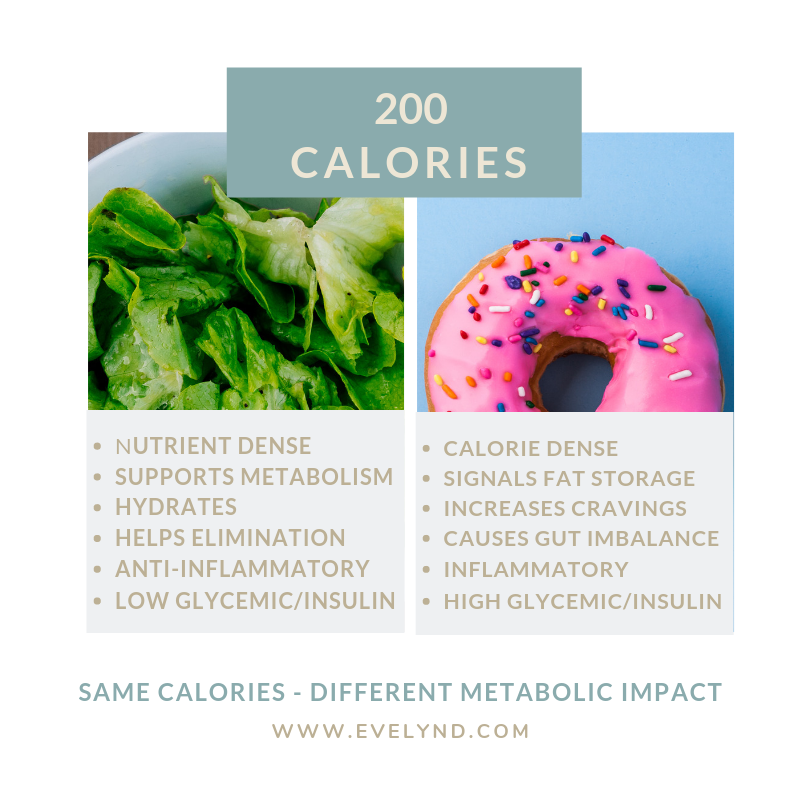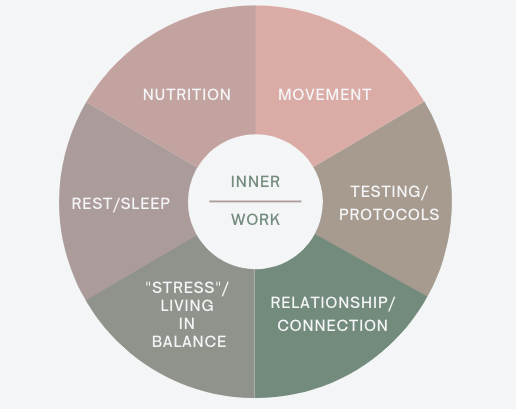Why Quality AND Quantity Matter
There are opposing views when it comes to weight loss (or weight management) and calories versus hormones. One camp focuses solely on the calories and the other is all about the hormonal impact of various foods.
This is why Keto and Low Carb approaches are so popular and effective. But I know first hand that Keto is not free-for-all either…Quality and quantity matter there too!
Some experts proclaim “as long as it’s Keto (under 20 grams of total carbs), eat as much as you want!” All based on the lowered production of the hormone – INSULIN.
Cheese, heavy cream, salami, bacon and artificial sweeteners/sugar alcohols! Bring ’em on, right?
Not for most: These foods are calorically dense and nutrient poor AND usually create inflammation. So even though they may not spike insulin, the caloric surplus will still block fat burning and promote fat storage.
It’s a scientific fact that we have to create a caloric deficit for the body to use it’s stored energy (aka: body fat), but it’s not all about calories either.

The quality – specifically the nutrient density, glycemic impact and inflammatory aspects – of everything you eat – matters. Not only when it comes to fat loss – but also for overall health, hormones, gut balance and the immune system.
The image above illustrates this well. Volume-wise, 200 calories worth of green leafy lettuce is about 4 entire heads of lettuce vs. 1 donut! This is a classic comparison of nutrient dense foods (meaning more nutrients per calorie) versus calorie dense foods (less nutrients per calorie).
(I know – but who wants to eat 4 heads of lettuce? LOL)
This is where just focusing on the numbers: calories, points (Weight Watchers) and macros (IIFYM – If It Fits Your Macros) can work against you unless you’re very mindful of the nutrient and hormonal impacts of the foods you choose.
Which is why I always advocate for eating real food – and then you need to figure out the caloric level and carb tolerance for YOU. The level that balances hormones and encourages the body to release it’s stored energy/body fat (if that’s what you’re working on).
(IMPORTANT NOTE: Lifestyle factors play a key role too – as well as the state of your Hypothalamic, Pituitary, Thyroid, Adrenal, Ovarian axes.)
Some people can get away with the Calories In – Calories Out approach and eat whatever, but I find most women (and men) with any kind of weight-loss resistance issue – CAN’T – simply because they’re more insulin resistant.
Insulin Resistance is a metabolic state where insulin receptor signals become desensitized – so more and more insulin is produced based on the metabolic trigger.
The most common trigger is the overconsumption of carbohydrates – especially refined carbohydrates (as in products made with flours, sugars and junk).
Insulin resistance can also be triggered by cortisol dysregulation due to too much stress: mental/emotional stress, inflammatory foods, deficiencies, metabolic stress, poor sleep, toxins, exercise (-over- or under- training) etc…
More insulin = More fat storage
(unless you’re fortunate enough to be insulin “sensitive”).
Bottom line, calories matter and hormones matter – both sides are correct! If you’re struggling with weight loss or your health, here’s the approach that optimizes hormones to promote far burning:
EAT REAL FOOD + BALANCE CARBS + DON’T OVEREAT + MANAGE STRESS
So simple, right?! Uh Ya – easier said than done. As I’ve shared many times before, I’ve managed the first three pieces of the equation like any decent perfectionist would :), but my stress easily negates everything. That’s why it’s been such a focus in my life and my work.



